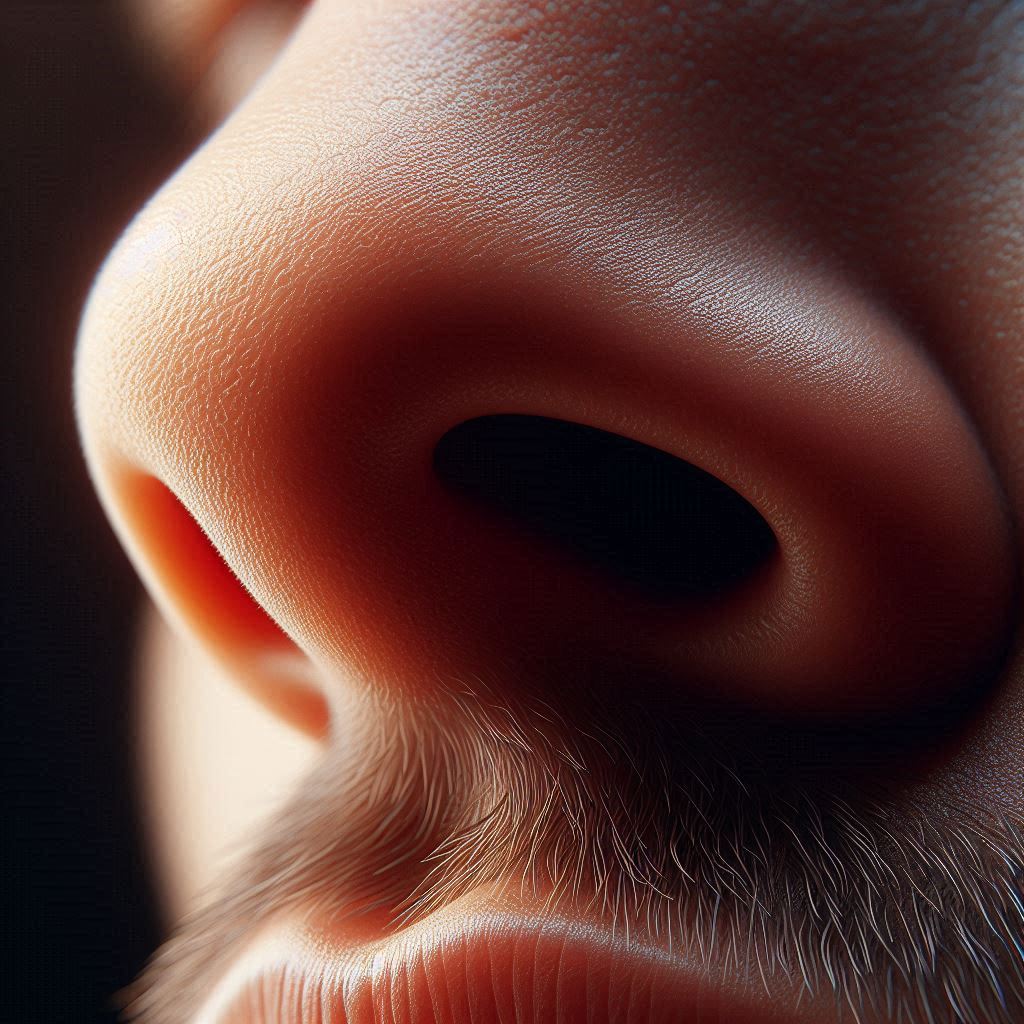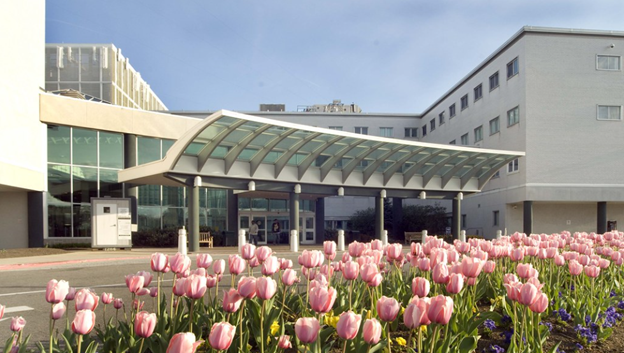Booger Sugar Meaning
What Does ‘Booger Sugar’ Mean? A Complete Exploration of the Slang Term
Understanding Drug Terminology in Context
The English language constantly evolves, particularly when it comes to slang terminology. Certain terms emerge and gain popularity within specific communities before potentially entering more mainstream usage. As a substance abuse researcher and educator with over fifteen years of experience in addiction studies and drug culture terminology, I’ve observed how slang terms provide insight into cultural attitudes and practices surrounding various substances.
The term “booger sugar” represents one such example—a colorful colloquialism that has developed specific connotations in American slang. Understanding these terms serves several important purposes: it allows parents, educators, and healthcare professionals to recognize potential substance use discussions; it helps researchers track evolving drug culture; and it provides context for references encountered in media and everyday conversations.
This comprehensive guide explores the meaning of “booger sugar,” its origins, usage contexts, and related terminology. We’ll examine how this slang term fits into broader patterns of drug-related language and consider the importance of recognizing such terminology in both educational and prevention contexts.
What Does ‘Booger Sugar’ Mean? The Straightforward Definition
Primary Meaning and Usage
“Booger sugar” is an American slang term that primarily refers to cocaine, a powerful stimulant drug derived from the coca plant. The term creates a visual and functional metaphor between the white, powdery appearance of cocaine and common table sugar, while the “booger” component references the method of consumption—typically through nasal inhalation, or “snorting.”
The term belongs to a category of recreational drug slang that uses colorful, sometimes humorous euphemisms to reference illicit substances. “Booger sugar” is most commonly used in casual conversations among those familiar with drug culture, in certain music lyrics (particularly in some hip-hop, rock, and country genres), and increasingly in popular media depictions of drug use.
Secondary and Broader Applications
While cocaine represents the primary referent for “booger sugar,” the term has occasionally been applied more broadly to other substances that share similar physical properties or methods of consumption:
- Some users extend the term to other white, powdery substances that may be consumed nasally, such as crushed prescription stimulants.
- In certain regions, particularly parts of the southern United States, the term has been adapted to apply to methamphetamine when processed into a fine, white powder form (though this usage is less common).
- More recently, certain commercial products have adopted the term for marketing purposes, disconnected from its drug reference. For example, some hunting products use “booger sugar” to name deer attractants or mineral licks.
It’s worth noting that in any discussion of substance-related terminology, context matters significantly. The same phrase can carry different implications depending on the speaker, audience, and setting in which it’s used.
The Etymology and Origin of ‘Booger Sugar’
Breaking Down the Compound Term
The term “booger sugar” combines two distinct words to create its meaning:
Booger: In American slang, this refers to dried nasal mucus. The inclusion of this word directly references the nasal route of administration for cocaine.
Sugar: This component refers to the substance’s white, crystalline appearance, which can visually resemble granulated sugar. It also potentially alludes to the sweet taste that cocaine can produce as it drips from the nasal passage to the throat after snorting.
Together, these words create a descriptive term that simultaneously references the substance’s appearance and how it’s commonly consumed.
Historical Development of the Term
Tracing the exact origins of drug slang can be challenging, as such terminology often develops organically within communities before spreading more widely. However, linguistic analysis suggests:
- The term likely originated in the United States during the cocaine boom of the late 1970s and early 1980s, when recreational cocaine use became more prevalent in certain social circles.
- Earlier versions of similar terminology existed, with terms like “nose candy” and “snow” predating “booger sugar” as cocaine references.
- The term gained wider recognition through its use in popular culture, particularly music, film, and television that depicted drug culture.
- By the early 2000s, the term had become recognized enough to begin appearing in slang dictionaries and drug education materials.
Unlike formal language, which often has well-documented etymological histories, slang terms like “booger sugar” evolve through spoken language and cultural transmission, making their precise origins difficult to pinpoint.
‘Booger Sugar’ in Cultural Context
Appearance in Music and Media
The term “booger sugar” has appeared across various entertainment media, helping to spread its usage beyond immediate drug culture circles:
Music References: The term appears in lyrics across multiple genres, including:
- Hip-hop tracks discussing drug culture or lifestyle
- Country songs, sometimes in references to hard living or partying
- Rock music, particularly in genres with outlaw or rebellious themes
Film and Television: References to “booger sugar” have appeared in:
- Crime dramas depicting drug trafficking or usage
- Comedy films or shows using drug culture for humorous effect
- Documentaries examining substance use or American drug culture
These cultural references both reflect existing usage and further popularize such terminology, sometimes introducing it to audiences previously unfamiliar with the slang.
Geographic and Demographic Distribution
The usage of “booger sugar” varies significantly across different regions and demographic groups:
Regional Variations:
- The term appears most commonly in American English, with particular prevalence in the South and parts of the Midwest
- Urban areas with established drug markets typically have higher familiarity with the term
- International usage exists primarily in English-speaking countries with American cultural influence
Demographic Patterns:
- Usage crosses socioeconomic boundaries but tends to be most recognized among adults aged 25-45
- The term appears more frequently in male speech patterns, though this gender divide has diminished over time
- Recognition of the term doesn’t necessarily indicate usage of the substance; many recognize it from media or educational contexts
Understanding these patterns helps contextualize where and how the term might be encountered in everyday life.

Related Terminology and Alternative Names
Cocaine-Specific Slang Terms
“Booger sugar” exists within a rich ecosystem of cocaine-related slang terminology. Other common terms include:
- Nose candy – Another reference to nasal consumption and the substance’s appeal
- Snow – Referencing the white appearance
- Blow – Derived from the act of snorting or “blowing” the substance
- White girl – A personification reference to the substance’s color
- Powder – A straightforward description of its physical form
- Yayo or yeyo – Derived from Spanish slang (from “llello”)
- Coke – The most common shortened form of “cocaine”
- White – Simple reference to the color
- Sniff – Referencing the method of consumption
- Dust – Describing its powdery texture
These terms often function as coded language, allowing discussions of the substance in public settings or in ways that might elude detection by authorities or others unfamiliar with drug culture terminology.
Pattern Recognition in Drug Slang
Drug terminology generally follows predictable patterns that help explain why terms like “booger sugar” develop:
- Visual metaphors: Terms based on a substance’s appearance (white, powdery, crystalline)
- Consumption references: Names that indicate how the drug is used (snorted, inhaled)
- Effect descriptors: Terms that reference the drug’s impact (upper, amp, zoom)
- Humorous misdirection: Playful or incongruous terms that disguise the serious nature of substances
- Cultural references: Terms that tie into broader cultural understanding or inside jokes
“Booger sugar” combines several of these patterns, creating a vivid, somewhat humorous visual metaphor that simultaneously describes the substance’s appearance and consumption method.
Medical and Health Perspectives on Cocaine Use
Understanding the Substance Behind the Slang
While this article focuses on terminology, it’s important to understand the substance to which “booger sugar” refers:
Cocaine is a powerful central nervous system stimulant derived from the coca plant native to South America. It produces intense but short-lived euphoria by increasing levels of dopamine in brain circuits related to pleasure and reward. As a Schedule II controlled substance in the United States, cocaine has high potential for abuse but does retain limited legitimate medical applications as a local anesthetic in specific surgical procedures.
When used recreationally, cocaine typically appears as a fine white powder that users most commonly consume by:
- Nasal insufflation (snorting)
- Rubbing onto mucous membranes (gumming)
- Smoking (particularly in crack cocaine form)
- Injection (less common with powder cocaine)
The method referenced in the term “booger sugar”—nasal insufflation—brings specific health risks beyond those inherent to cocaine itself.
Health Risks Associated with Nasal Consumption
The practice of snorting cocaine, as implied by the term “booger sugar,” carries particular health concerns including:
- Nasal damage: Regular use can lead to chronic inflammation, infection, perforation of the nasal septum, and loss of smell
- Respiratory issues: Irritation of nasal passages, sinusitis, and increased risk of upper respiratory infections
- Transmission risks: Sharing straws or other snorting implements can potentially transmit blood-borne pathogens
- Reduced harm reduction options: Unlike some other consumption methods, nasal use offers limited opportunities for harm reduction strategies
Understanding these specific risks provides important context for why terminology like “booger sugar” that normalizes or makes light of nasal consumption is concerning from a public health perspective.
Legal and Educational Considerations
Recognizing Drug References in Communication
For parents, educators, healthcare providers, and law enforcement personnel, recognizing terms like “booger sugar” serves several important functions:
- Communication monitoring: Identifying potential discussions of substance use in various contexts
- Early intervention: Recognizing references that might indicate experimentation or regular use
- Cultural competence: Understanding the terminology used by individuals who may need assistance or intervention
- Evidence recognition: In legal contexts, identifying drug references in communications or social media
However, it’s crucial to approach such terminology with nuance. The mere use or knowledge of terms like “booger sugar” doesn’t necessarily indicate personal substance use. Many individuals are familiar with such terminology through media exposure, educational programs, or general cultural awareness.
Educational Approaches to Drug Terminology
When addressing terms like “booger sugar” in educational settings, research suggests several effective approaches:
- Straightforward information: Providing clear, factual information about what terms mean without sensationalizing
- Context over memorization: Focusing on understanding patterns of drug slang rather than cataloging specific terms, which rapidly evolve
- Media literacy: Teaching critical evaluation of how drugs are portrayed in entertainment and social media
- Avoiding inadvertent promotion: Discussing terminology in appropriate educational contexts without inadvertently increasing its “cool factor”
Educational programs that acknowledge and address drug culture terminology tend to be more effective than those that avoid such discussions, as they better prepare individuals to recognize and navigate real-world situations.
Evolving Usage: ‘Booger Sugar’ Beyond Drug Culture
Commercial Adaptations of the Term
Interestingly, the term “booger sugar” has been adopted in commercial contexts disconnected from its drug culture origins:
Hunting and Wildlife Products: Some companies market deer attractants or mineral licks under the name “Booger Sugar,” playing on the idea that the product will attract deer like an irresistible substance. These products typically contain salt and other minerals that wildlife are drawn to.
Novelty Items: The term occasionally appears on novelty products, particularly in adult-oriented gift shops or online merchants, where the drug reference becomes a form of edgy humor.
Fitness Supplements: Some pre-workout or energy supplements have informally adopted the name, alluding to the energy-boosting properties of the original referent without containing any illicit substances.
These commercial adaptations demonstrate how slang can evolve beyond its original context, though they often still rely on audiences recognizing the original drug reference for their marketing impact.
Evolution of the Term in Digital Communication
Like much slang, “booger sugar” has adapted to digital communication contexts:
- Social Media: The term appears with varying frequency across platforms, sometimes with hashtags or in coded discussions
- Emoji Substitution: Some users replace the term with emoji combinations like “👃❄️” or “👃⚪”
- Content Moderation Evasion: Various spellings or partial terms may be used to evade automated content filters
- Memes and Visual References: The term has been incorporated into internet humor through memes and visual jokes
This digital evolution highlights how drug terminology continuously adapts to new communication contexts while maintaining its core referential meaning.
‘Booger Sugar’ vs. Similar Terms: Comparative Analysis
How ‘Booger Sugar’ Compares to Other Cocaine References
When examining drug slang, linguistic characteristics often reveal cultural attitudes toward substances. Comparing “booger sugar” to other cocaine terms:
| Term | Tone | Visual Component | Method Reference | Likely Context |
|---|---|---|---|---|
| Booger Sugar | Humorous, somewhat crude | Strong (sugar) | Explicit (booger/nasal) | Casual, among peers |
| Nose Candy | Playful, enticing | Moderate (candy) | Explicit (nose) | Casual, widespread |
| Snow | Neutral, subtle | Strong (white, powdery) | None | Broader contexts |
| Blow | Direct, neutral | None | Implied | Common in many contexts |
| White Girl | Coded, personified | Strong (white) | None | More secretive discussions |
“Booger sugar” stands out for its particularly direct reference to the method of consumption and its somewhat humorous, irreverent tone compared to more neutral or subtle terms.
Regional and International Variations
Geographic variations in cocaine terminology reveal interesting patterns:
United States: “Booger sugar” appears most commonly in Southern and Midwestern regions, while coastal urban areas more frequently use terms like “blow” or simply “coke”
United Kingdom: The term has limited usage, with “charlie,” “beak,” and “gak” being more common cocaine references
Australia: “Rack,” “dust,” and “nose beers” predominate, with “booger sugar” recognized primarily through American media
Canada: Usage patterns similar to the U.S., with some regional variations and French-influenced terms in Quebec
These regional differences reflect both local drug cultures and broader patterns of American cultural influence on English-language slang worldwide.
Recognizing Substance References: A Guide for Parents and Educators
Red Flags vs. Normal Teen Language
For parents and educators concerned about recognizing potential substance use, context matters significantly when evaluating terms like “booger sugar”:
Potential Concern Contexts:
- Repeated usage in personal communications
- Appearance alongside other drug-related terminology
- Direct discussion of acquiring or using substances
- References to prices, quantities, or effects
Less Concerning Contexts:
- Discussion of media where the term appears
- Educational or news contexts
- One-time mentions without supporting evidence
- Clearly joking or parodying drug culture
The goal isn’t to panic upon hearing any drug-related terminology but to maintain awareness of potential warning signs that might warrant further attention or conversation.
Having Productive Conversations About Drug Terminology
When adults encounter terms like “booger sugar” in youth communications, research supports these approaches:
- Ask open-ended questions about where they learned the term and what they understand it to mean
- Provide factual, non-sensationalized information about what the term references
- Use the opportunity for broader education about substance risks without assuming personal use
- Maintain open communication channels so young people feel comfortable discussing concerns
- Focus on health and safety rather than punishment or accusations
These conversations work best when they’re part of ongoing, open dialogue about health and safety rather than reactive interventions.
Contextualizing ‘Booger Sugar’ in Broader Drug Education
The Role of Slang Recognition in Prevention
Substance use prevention professionals recognize several important functions of understanding terminology like “booger sugar”:
- Cultural competence in communicating with at-risk populations
- Accurate risk assessment when evaluating communications or behaviors
- Relevance in educational materials that connect with target audiences
- Recognition of evolving trends in substance use patterns
However, excessive focus on terminology can sometimes distract from more substantial prevention approaches. Effective drug education contextualizes slang within broader frameworks of understanding substance use risk factors, protective factors, and harm reduction strategies.
Beyond Terminology: Comprehensive Prevention Approaches
Research consistently shows that the most effective prevention efforts move beyond simple terminology recognition to address:
- Social and emotional skill development that strengthens resistance to peer pressure
- Critical media literacy that helps young people evaluate drug portrayals
- Accurate information about health risks that avoids exaggeration or scare tactics
- Supportive community environments that provide alternatives to substance use
- Early intervention resources for those showing signs of problematic use
Terms like “booger sugar” represent entry points for these broader conversations rather than endpoints in themselves.
Frequently Asked Questions About ‘Booger Sugar’
Common Questions Addressed
Q: Is “booger sugar” always a reference to cocaine? A: While cocaine is the primary referent, the term occasionally extends to other white, powdery substances that are consumed nasally. Context usually clarifies the specific substance being referenced.
Q: Where did the term “booger sugar” originate? A: The exact origin is difficult to pinpoint, but linguistic evidence suggests it emerged during the cocaine boom of the late 1970s and early 1980s in the United States, combining visual metaphor (sugar) with consumption method (booger/nasal).
Q: Does using or knowing terms like “booger sugar” indicate someone uses drugs? A: No. Many people are familiar with drug terminology through media, education, or cultural exposure without personal use. Knowledge of slang alone shouldn’t be considered evidence of substance use.
Q: Why do people use coded terms like “booger sugar” instead of direct terms? A: Slang terms serve multiple functions: avoiding legal detection, creating in-group identity, adding humor or lightness to taboo subjects, and communicating in ways that outsiders might not understand.
Q: Is “booger sugar” considered offensive terminology? A: The term isn’t generally considered offensive based on identity or demographic factors, but it does trivialize substance use in ways that some recovery advocates and health professionals find concerning.
Q: How should I react if I hear someone use this term? A: Context matters significantly. In educational or informational contexts, it may be appropriate to acknowledge the term factually. If used in ways suggesting active substance use concerns, a private, non-judgmental conversation might be warranted.
Q: What makes Booger Sugar 1000mg a unique energy supplement? A:
Booger Sugar 1000mg claims to be a carefully balanced formula that delivers both high-energy stimulation and mental clarity. Powered by Yohimbine, which says it boosts energy levels and supports fat metabolism, and Caffeine, which enhances alertness and concentration, it ensures a strong yet steady surge of vitality.
The product states to prevent overstimulation, Kanna Extract and GABA work together to promote relaxation and mental focus, helping users stay sharp without the jittery side effects. This synergistic blend makes Booger Sugar 1000mg a smart choice for those seeking an effective energy boost with added mood-enhancing benefits. If you are considering using this product, check with your medical professional.
Understanding Terminology in Cultural Context
The term “booger sugar” represents more than just a colorful synonym for cocaine—it reflects broader patterns in how language evolves to discuss taboo or illegal subjects. Like much drug slang, it combines visual description, humor, and functional reference to create a coded but evocative term that has persisted in American vernacular for decades.
For parents, educators, healthcare providers, and concerned community members, understanding such terminology provides valuable insights into how substances are discussed and perceived. Rather than simply cataloging terms, this knowledge becomes most useful when integrated into broader approaches to education, prevention, and harm reduction.
Language continuously evolves, and new drug-related slang inevitably emerges as older terms become too widely recognized. However, understanding the patterns behind terms like “booger sugar” equips individuals to recognize and contextualize future terminology innovations within their cultural and functional contexts.
In all discussions of substance-related language, the ultimate goal remains consistent: moving beyond simple recognition of terms toward meaningful conversations about health, safety, and informed decision-making regarding substances with significant risk potential. If you or someone you love is struggling with substance abuse contact Couples Rehabs for support.
About the Author: This article was written by a substance abuse researcher and educator with over fifteen years of experience studying drug terminology, prevention approaches, and effective education strategies. The author has published multiple peer-reviewed articles on evolving drug culture language and consulted with educational institutions on developing age-appropriate substance use prevention curricula.
Disclaimer: This article is provided for informational and educational purposes only. It does not promote or endorse substance use and aims to provide factual context for terminology that exists regardless of our discussion of it.














Recent Comments